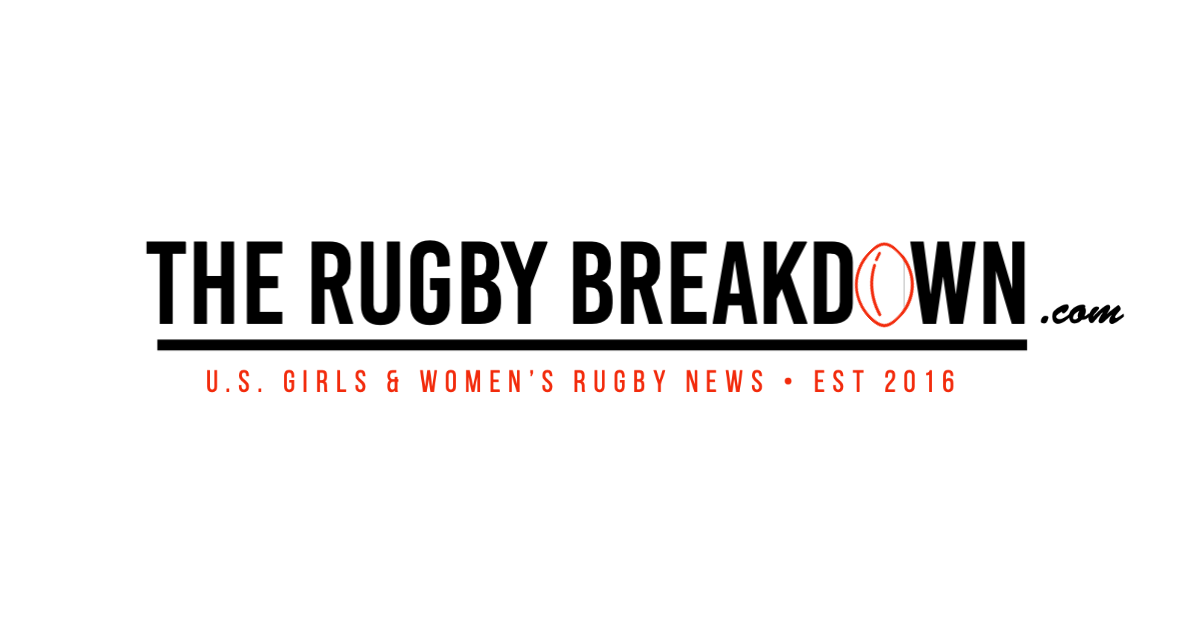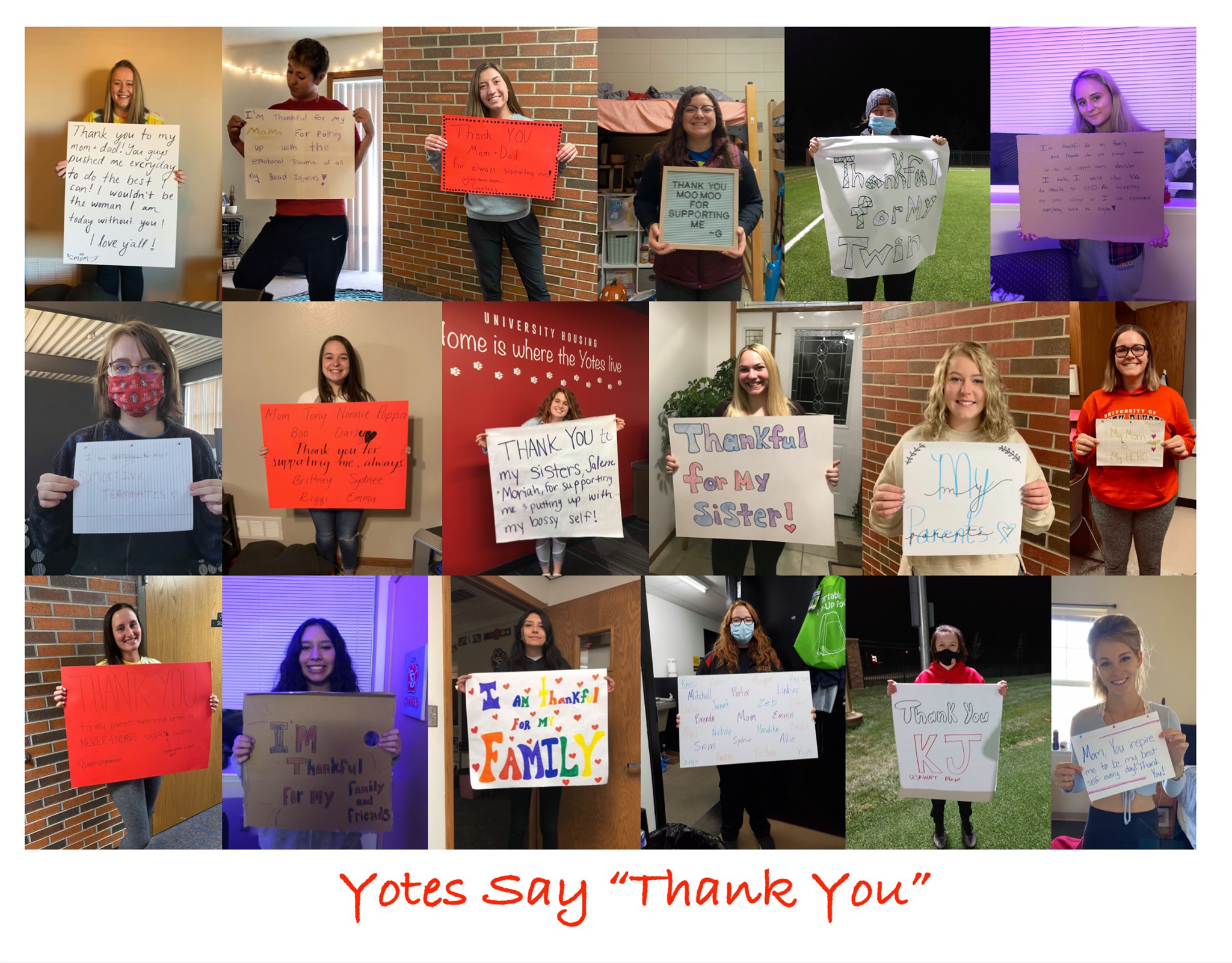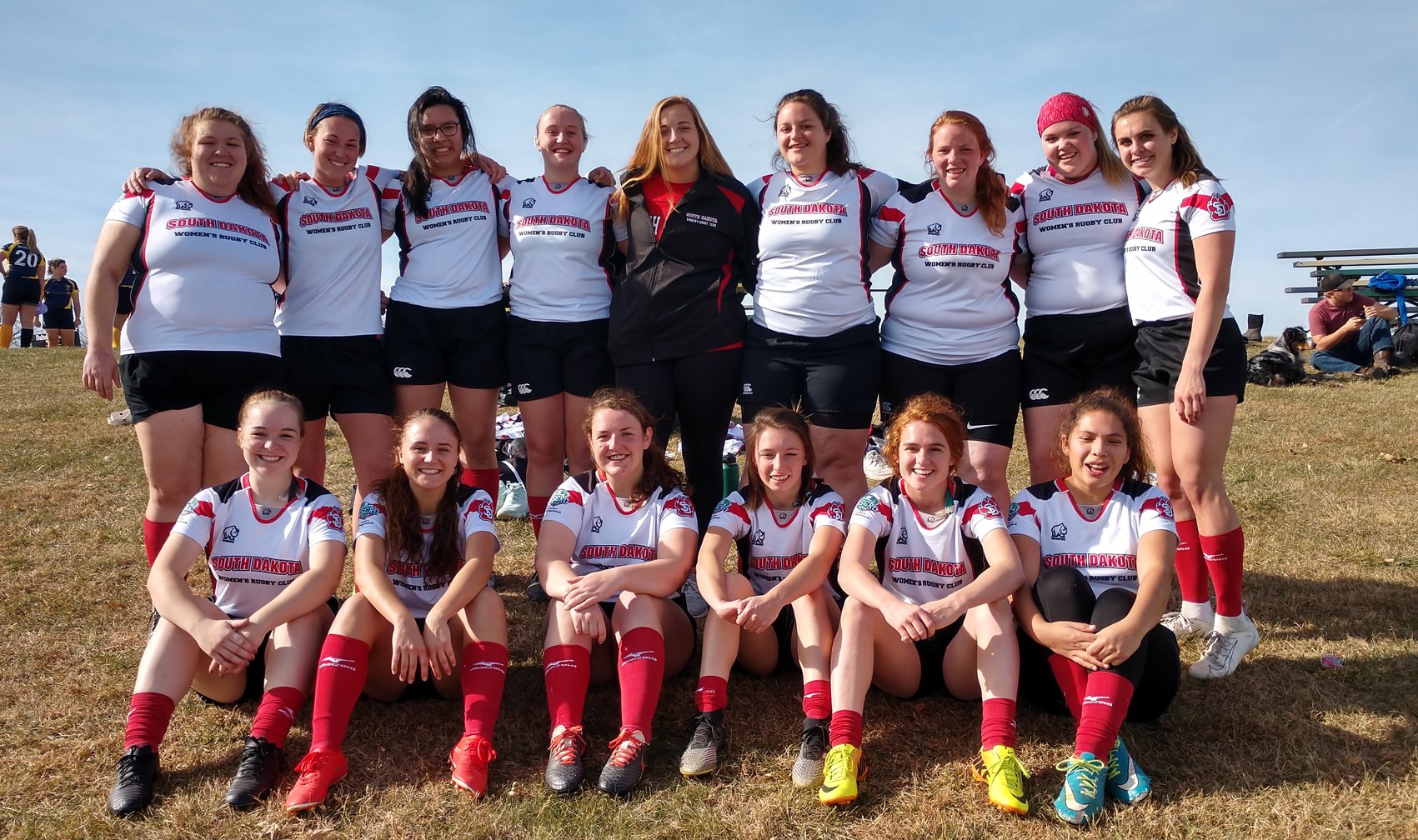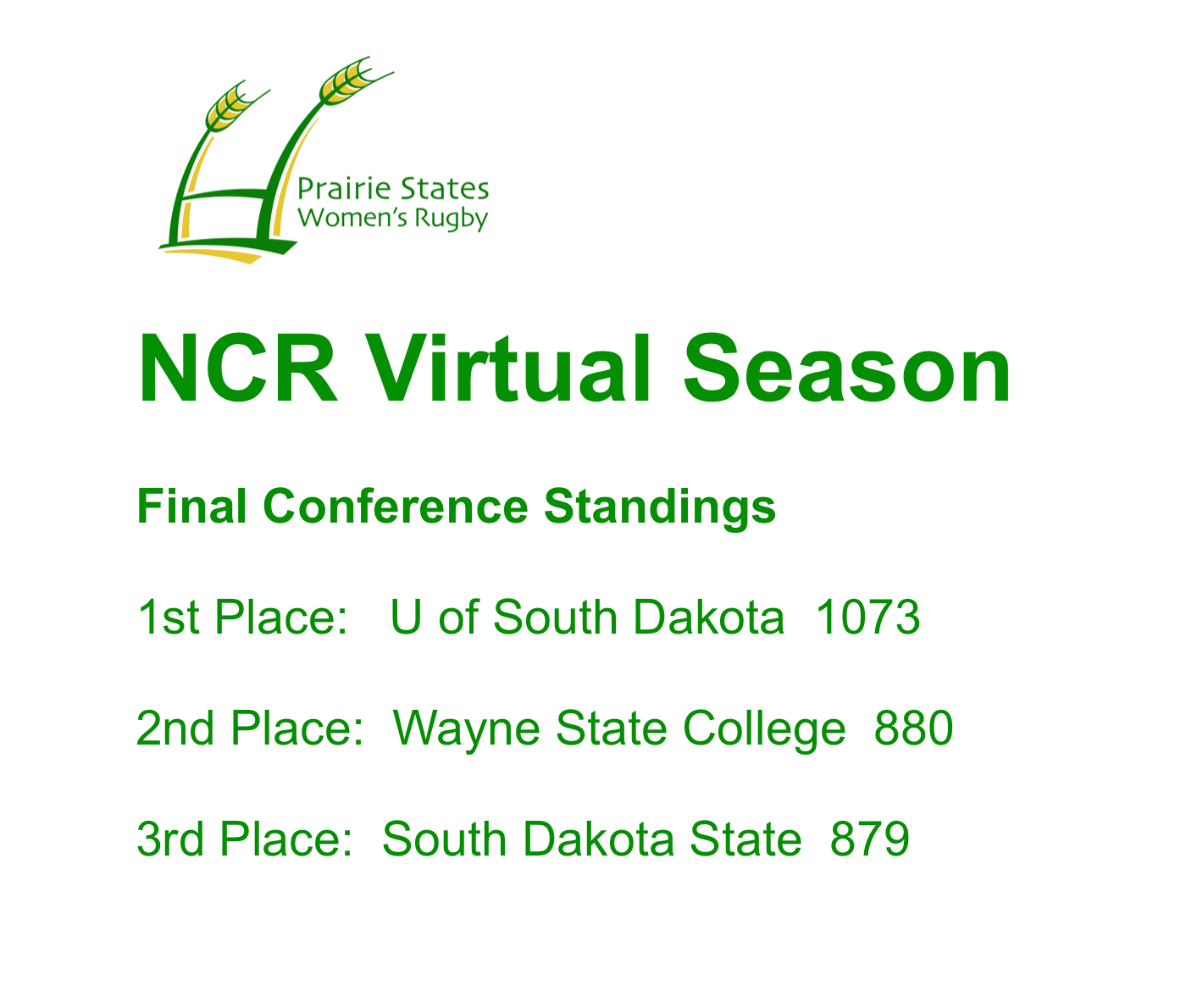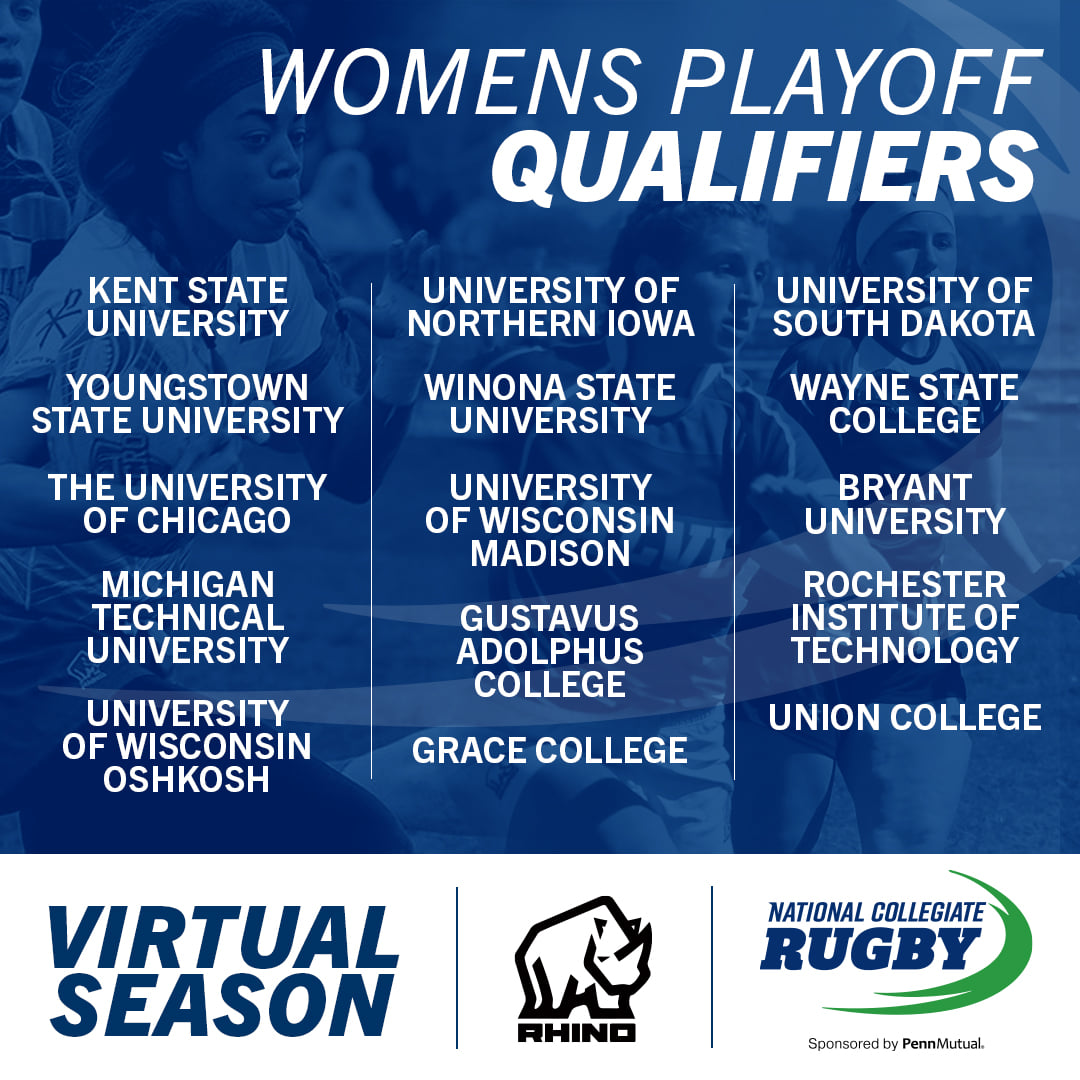The University of South Dakota (USD) might be considered the underdog for the National Collegiate Rugby (NCR) virtual national championship, but the Yotes are oblivious to these odds. The previous two recruitment classes were big, and Covid-19 has limited their understanding of what exists outside of their conference. All that’s left to do is work like this season’s title is achievable, and that is precisely what the Vermillion-based team has done.
RELATED: Chivers Reflects on NSCRO Achievements
In fall 2018, former NSCRO (now NCR) Women’s Commissioner Bryn Chivers was set to referee a small 7s tournament at USD. All of the participants were worried about numbers, and Chivers expected the hosts to also show up with its traditional 5-10 players. But 15 appeared.
“I hadn’t seen them with 15 in a long time,” said Chivers, who lives in South Dakota. “They used to play and practice off-campus on this horrible field across from a highway in the middle of nowhere. But now they were playing on campus. Later in the fall I told them that I could come to their practices if they wanted, and then the following spring [2019] I officially stepped up as head coach.”
Chivers is well versed in the player pathway for small-college athletes – he essentially created it – and he had athletes with next-level potential. Eden Liebenthal, a freshman in fall 2018, was the first to sample all-star opportunities.
“The freshmen group that year brought a different energy,” Chivers said of Liebenthal’s class, now juniors, that joined a team with maybe five players. “Eden is a good rugby player and went to Florida [for the 2019 NSCRO All-Star 7s Championship] with the Prairie States team. She had a really good tournament and was MVP of the all-star championship. That changed the visibility on campus. A lot of freshmen were walking around in t-shirts that said ‘Yotes Rugby’ on the back. They were telling their friends. The campus newspaper picked it up for a couple of stories. The recreation sports department – particularly Connor [Singhisen], the assistant director of rec sports – really started to support the program. They started to get a better budget and so on. … Now we have 30 players.”
Mary Borer, Brittney Jennings and Trixie Jo Schlechter made the 2020 Prairie State 7s Select Side and the latter was the leading try-scorer in St. Petersburg, Fla. Covid-19 then canceled the spring 2020 season, meaning the current juniors (and one senior player) were the last players to experience the full breadth of the yearlong rugby season.
“The quality of athlete has improved, too, and we’ve added some fine players this year,” Chivers looked toward the 14 freshmen this fall. “We have one player, Courtney Kollis, who is exceptionally fast and fit. She runs the 300-meter shuttle – she’s run seven of them now – under a minute. Of all the Midwest U23s and USA U20s I’ve coached, there were maybe four who were under a minute. This last week was 57.98. That’s just way faster than I’ve seen. Her 40 is 5.09. She’s not small either. And she’s just one of them. There are others who are very good.”
Chivers retired from NSCRO/NCR at the end of spring 2020 and that allowed him to focus energies on USD. When NCR announced the virtual season for fall 2020, the coach knew this type of activity would be crucial to surviving a semester with no on-field competition.
RELATED: NCR Launches Virtual Fall Season
“I wanted them to do it seriously and not just, ‘Oh, that looks like a good thing to do,’” Chivers said. “They decided right from the get-go that they were going to commit; it was all the players. Eden, the captain and president, said, ‘We’re doing this! And if we’re doing it, then we’re going for it.’
“It would be easy for teams to not recognize it as a national championship,” he added. “‘We’re not playing rugby so it’s not a national championship,’ but it is. And because they were committed to the virtual season as a concept, I think they started off quicker than some other teams, and that gave them a healthy lead through the conferences and same into the playoffs.”
Teams earned points through a variety of weekly tasks, all of which had real-life rugby applications.
“With fitness, they had no idea they’d be here after eight weeks,” Chivers said. “Seeing the bar at ‘200 jumping jacks in 2 minutes’ seemed pretty high, especially when our best players were doing 175. Now we have four kids who can do 200 or more. Same with all the exercises. Wall sits are a minute-and-a-half longer or they can plank for two minutes longer than they could before. They’re all fitter, stronger, faster.
“They want to be competitive,” the coach added. “If they can’t knock the snot out of someone on the pitch then they want to be able to say, ‘I can do more pushups than you.’”
The weekly law quizzes were also a no-brainer in terms of developing a rounder rugby player. The education continued with the coaching videos. Early on teams were only required to source videos but in the later stages, coaches were required to film themselves presenting a certain topic and then debrief with the team.
“I watched someone else’s [tutorial] and they didn’t have a coach. They were not on topic at all, but they were teaching their rookies and answering their questions. It was a conversation,” Chivers said. “In the big picture of what the program was trying to do, this shows how successful it was. That team would never be in the situation where one player would be teaching other players using video. And maybe they’ll continue to do it in the future.”
Chivers is also hoping teams expand their online presence.
“For the first round of playoffs, [NCR Women’s Commissioner Angela] Smarto said, ‘You have to create a YouTube channel and post your videos there. And you should continue to do this – posting videos for your players, linking videos, using it to teach, and tape your games,” Chivers said. “I’m amazed how many teams don’t tape their games. Your impression of went right or wrong is otherwise emotional. It isn’t until you sit there in the calm on a Sunday morning and look at the video. ‘Yeah, I didn’t read that situation correctly.’ It’s part of the process.”
The social media and team-bonding elements delighted Chivers, who highlighted the big sis/little sis dream vacation exercise and cooking show as favorites. Erica Oney earned Week 4 MVP honors for efforts in driving these fun elements, and as the season progressed, Chivers saw how important these connections were.
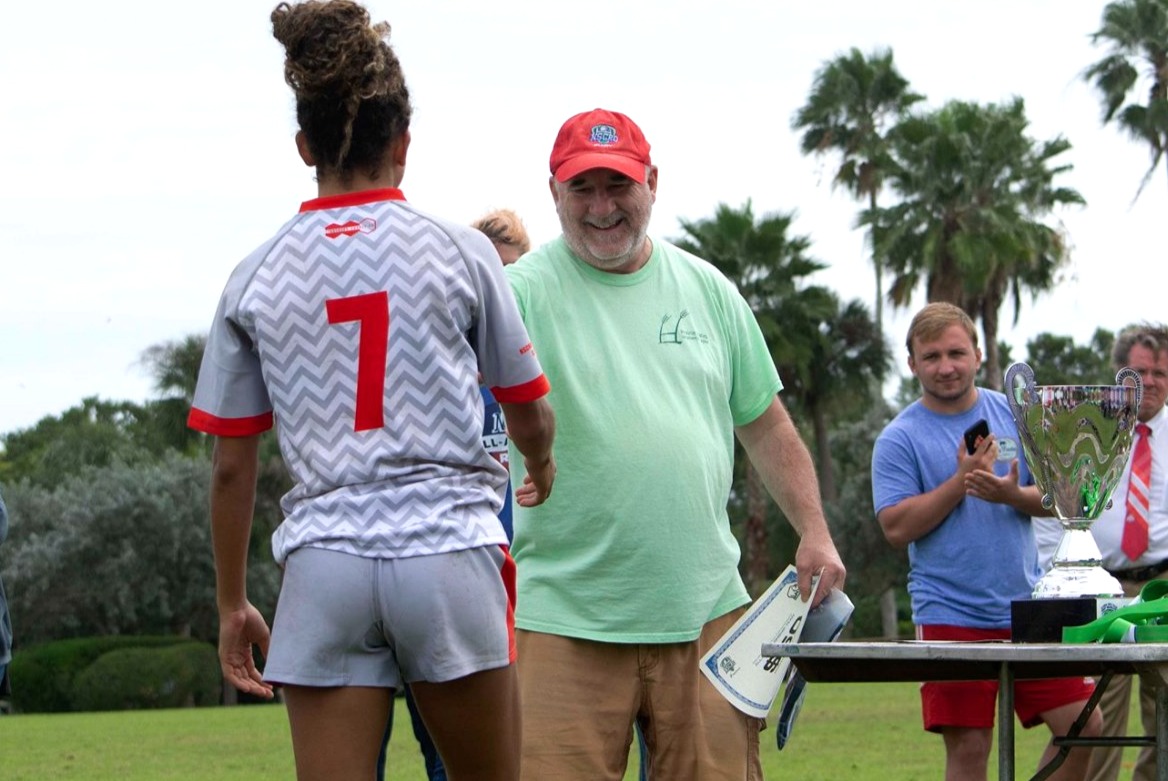
“Without a doubt – and this was evident halfway through the season – this is the most stressful time for especially an undergrad group that’s there’s ever been,” Chivers said. “You can see how demanding it is to be a college kid right now. Kids coming back to a college no longer have the things they had before, no support groups or social groups – they’re isolated. They can’t hug each other or be as tight with their friends as they were. ‘Let’s eat together,’ but even that is distanced and in masks. It has taken a toll. I will say that to have got this far in the virtual season, I have the greatest admiration for them because it is so stressful for them.
“This week, they had to create a new team chant, but they never really had one before,” he continued. “The theme that has emerged is that they’re family, and that is felt throughout the entire team. ‘We are your family away from family because right now you need people.’ It’s really helped. … The country’s stressed out – Covid, a combination of things – and for us, the virtual season has given them something to rally around.”
Fortunately, USD was able to practice in person with social distancing measures. The first half of practice focused on passing, running lines, changes of angle, decision-making, and then the second half of practice was flag rugby.
“It resembles some opportunities you might get on the Pacific Coast, where there’s plenty of time to learn then play,” Chivers said of the competitions that played friendly falls and then league 15s in the spring. “That’s rare in the Midwest and Northeast because you have to get your 15s season done by mid-November. So you might show up to your first practice on Tuesday and be asked to play on Saturday, but now they could grow and learn the game through playing flag first.”
USD won the Prairie States conference and advanced to the first round of playoffs alongside Wayne State College (Neb.) and 13 other teams. Eight conferences overall sent representatives to the post-season. The Yotes were ranked first in the Round of 8 and are now finishing the final week’s tasks against University of Northern Iowa, Winona State and the University of Chicago.
“They’re all too new to understand what they could be,” Chivers knew the reputations of their semifinal opponents. “This freshmen group hasn’t played, so they have no point of reference, and [sophomores] Trixie, Mary and Britt were the only ones who played in the spring before it was canceled. … They never tested the waters of who they were. I can only tell them, ‘That was really fast. You have potential,’ and they have to trust me when I call it. So, no, they don’t think of themselves outside of what they’re doing with the virtual season.”
The competition ends Saturday night and Smarto will announce the champion on Sunday. The victor wins customized team kit from sponsor Rhino Rugby.
“I can’t imagine losing another season [to Covid-19],” Chivers looked toward what the New Year might bring. “It’s already an uphill battle for women’s teams to keep their numbers up. But if there was another virtual season, the biggest thing would be getting everyone involved. We need to get teams to understand the benefits of a virtual season in keeping their teams together.”

